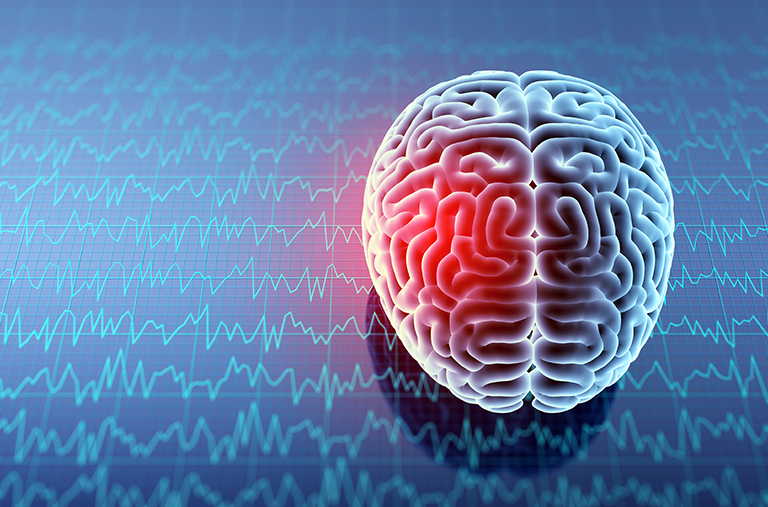A person who suffers a blow to the head or a penetrating head injury may frequently develop a condition that disrupts the function of the brain, known as a traumatic brain injury (“TBI”). TBI is a leading cause of death and disability in the United States. Each year, 2.8 million people sustain a traumatic brain injury. 50,000 of those die from the TBI, and 282,000 people require hospitalization. Each year, 80,000 to 100,000 people will sustain a long-term disability as the result of a TBI. The Centers for Disease Control and Prevention estimate that at least 5.3 million Americans currently have a long-term or lifelong need for help to perform activities of daily living as a result of TBI.

Mississippi Brain Injuries can cause Serious Injuries
The leading causes of traumatic brain injury in Mississippi are falls, motor vehicle accidents, being struck by or against an object, and assaults or abuse by another person. TBI can also result from a violent jolt of the head such as one might experience in a rear-end automobile collision (“whiplash”) may result in serious brain injury. In a violent collision, the head snaps forward and the brain hits the front of the skull; then the head snaps backward and the brain hits the back of the skull. These impacts can cause serious brain injury. Shaken-baby syndrome is an example of a serious brain injury without a direct blow to the head.
Brain Injury Accidents In Mississippi
Mild Traumatic Brain Injury: Mild traumatic brain injury is the most common TBI, and people often fail to identify the cognitive symptoms at the time of the injury, but instead may notice them as the person returns to work, school, or housekeeping. Friends and colleagues may notice changes in the person’s behavior before the injured person realizes anything is wrong. 15% of people with mild TBI have symptoms that last one year or more.
Moderate Brain Injury: Symptoms are similar to those listed for mild TBI, but there may be long-term physical or cognitive deficits from a moderate TBI. Much will depend on the type and location of the specific injuries to the brain. Rehabilitation will help to overcome some deficits and help to provide skills to cope with any remaining deficits.
Severe Brain Injury: Severe brain injuries are life-threatening and often accompanied by a loss of consciousness of more than 6 hours or post-traumatic amnesia lasting more than 24 hours. A severe TBI survivor will typically face long-term physical and cognitive impairments. The range of the deficits can vary widely from a vegetative state to more minor impairments that may allow the person to still function independently. The person will require extensive rehabilitation to try to overcome some of the deficits and earn strategies to cope with others.
The long-term effects of a brain injury depend on a number of factors, including the severity of the initial injury, the rate and completeness of physiological healing, the types of functions affected, the resources available to aid in the recovery of function, and other factors. Moderate to severe TBI can cause a wide range of functional changes affecting thinking, language, learning, emotions, behavior, and sensation.
Cognitive deficits associated with moderate and severe brain injuries include difficulties with:
- Attention
- Concentration
- Focus
- Memory
- Speed of processing information
- Confusion
- Impulsiveness
- Language processing
- Executive functions, or the processing of substantial amounts of complex information involved in planning, time management, decision making, coordinating events, adapting to change.
Burn Injury Speech, Language, Sensory, and Physical Problems
- Not understanding spoken words
- Difficulty speaking clearly
- Slurred speech
- Speaking too rapidly
- Speaking too slowly
- Problems with reading and writing
- Over-sensitivity to touch or temperature change
- Partial or total loss of vision
- Weakness of eye muscles
- Double vision or blurred vision
- Problems judging distance
- Involuntary eye movements
- Intolerance to light
- Vertigo
- Tinnitus or ringing in the ears
- Paralysis
- Chronic pain
- Loss of bowel and bladder control
- Sleep disorders
- Loss of stamina
- Changes in appetite
- Sexual dysfunction
- Menstrual difficulties in women
Brain Injury Recovery
Most spontaneous improvement from a brain injury in Mississippi occurs within the first month after a brain injury. Some additional gains may occur over the next three to six months. The long-term effects of a TBI are different for every person. Some may experience only subtle difficulties, while others will have moderate dysfunction, while to still others the TBI may be life-threatening. With TBI, the systems in the brain that control our social-emotional lives often are damaged. Thus, after injury, individuals with TBI may be unable to function well in their prior social roles. They may be confused easily when there is a change in normal routines, they may be unable to switch to a different tactic or a new task when encountering difficulties. Some TBI survivors may jump at the first solution they see, substituting impulsive responses for considered actions. They may be unable to go beyond a concrete appreciation of situations to understand abstract principles needed to carry learning into new situations. Personality can change substantially or subtly following injury. The consequences for the individual and his or her significant others may be difficult, as “the person who once was” is no longer there. The person who was an optimist may now be depressed. The previously tactful and socially skilled negotiator may now blurt embarrassing comments. The person may exhibit a variety of other behaviors: over-dependence, mood swings, lack of motivation, irritability, aggression, lethargy, or inability to modify behavior to varying situations.
Don’t Become a Victim of the Insurance Companies
Insurance companies aren’t your friends. They’re in business to make money, and they do this by collecting more money than they pay out. It’s in an insurance company’s best interests to avoid paying out on your claim, and sometimes they may try to avoid paying your legitimate brain injury claim. When they do pay, insurance companies try to low-ball you so they can keep more of their money for themselves. Things can get even more complicated if you’re injured in Mississippi.
We Work For You
If you have received a brain injury, don’t put yourself or your family at financial risk – contact the Mississippi brain injury lawyers at Chhabra, Gibbs & Gustavis, P.A. today to learn more about your rights.

